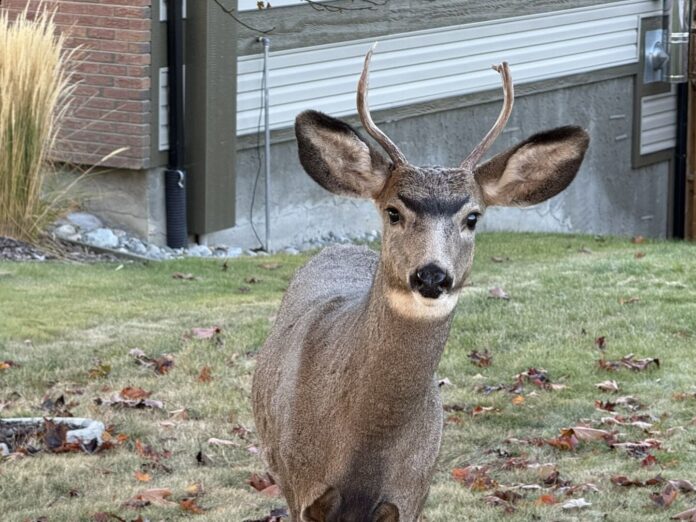A pair of wildlife experts will be in Cranbrook next month to present options to manage the spread of chronic wasting disease (CWD).
Provincial wildlife biologist Holger Bohm and biosecurity expert Jessica Russel will discuss the fatal illness, which infects deer, elk, moose and caribou.
So far, five cases have been confirmed in the Kootenays, all of which were found around Cranbrook and the South Country.
The public will have an opportunity to learn about the current situation and ask questions about CWD at this upcoming info session.
“With new cases being confirmed in the Kootenay region, this is a perfect time for conservationists and interested citizens to review what has been done to date and what other options are available to slow the spread of CWD,” said Glenn Flynn, past president of the EKWA and a director at the BCWF.
With only five cases found so far, the province has an opportunity to get the spread of CWD under control early.
“There was a paper released out of Wyoming which shows that where you have CWD, if you have moderate harvests of mule deer bucks, you can keep the prevalence of CWD low — somewhere below five per cent,” said Jesse Zeman, BC Wildlife Federation Executive Director.
“A number of jurisdictions experienced that the disease can take off if prevalence gets above 20 per cent. We have very few cases in B.C. right now, so we have an opportunity to manage it in localized areas.”
The BC Wildlife Federation says hunters could play a major role in suppressing the spread of CWD.
“Hunting is the best tool to not only manage CWD but to also understand its prevalence. When we look at other places in B.C. and across Canada that are doing deer population reductions, it can cost thousands of dollars per animal,” said Zeman.
“But hunters can do that and put meat in their freezer if it’s not infected. Hunting is the most important management tool that we have and it’s really important to have the hunting community on board because there is essentially no other cost-effective way of identifying the prevalence of the disease and managing it in localized areas.”
While there is no evidence that shows CWD can be transmitted to humans, Health Canada recommends against eating any part of an infected animal.
A CWD information session is planned for March 13 at 7 p.m. in Cranbrook’s Heritage Inn.
“This is for everyone who cares about wildlife and deer, really. If you care about the future of wild and urban deer, we want as many people as we can get to come out and hear from the experts,” said Zeman.
“Hopefully people come out with a better understanding of where we’re at, what CWD means and what we do in the future to keep prevalence low so we can do the best job we can in taking care of wildlife in the Kootenay region.”
Be the first to know! Don’t miss out on breaking news and daily updates in your area. Sign up to MyEastKootenayNow News Alerts.




